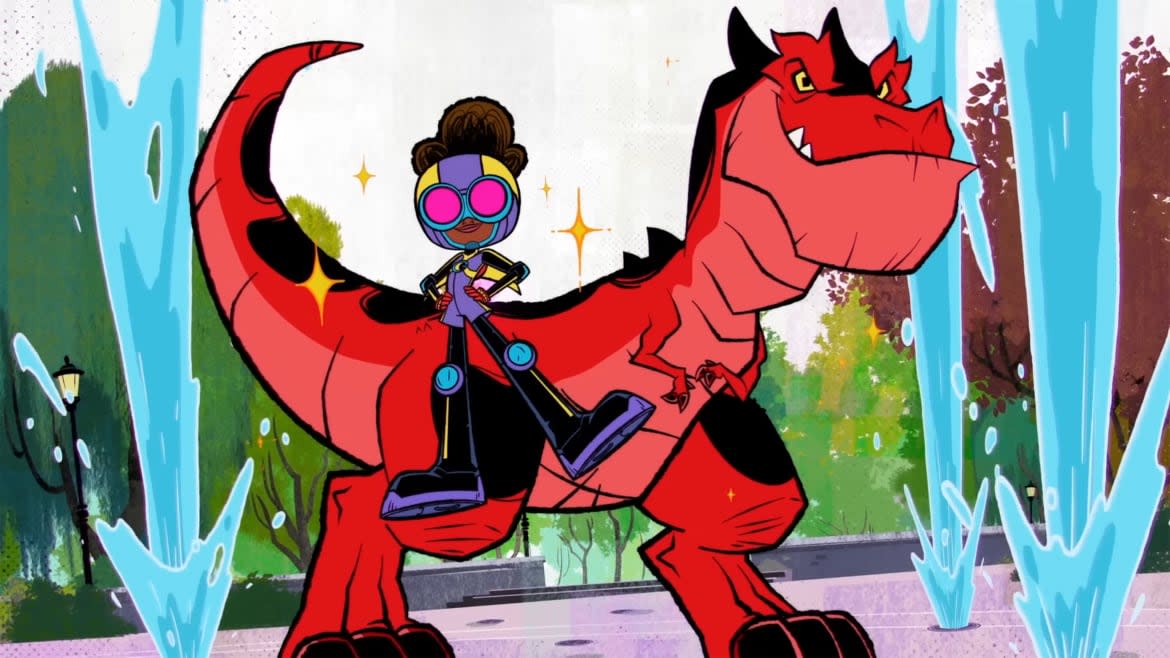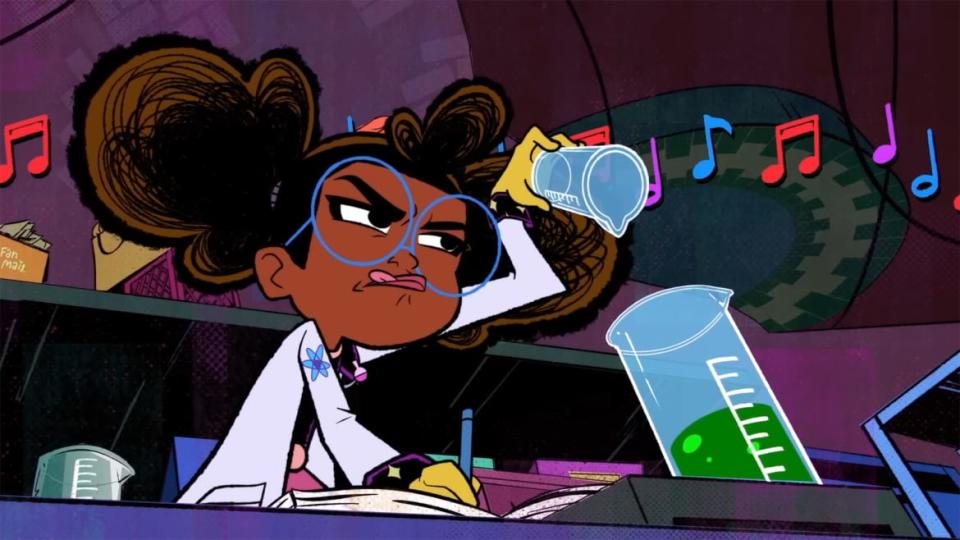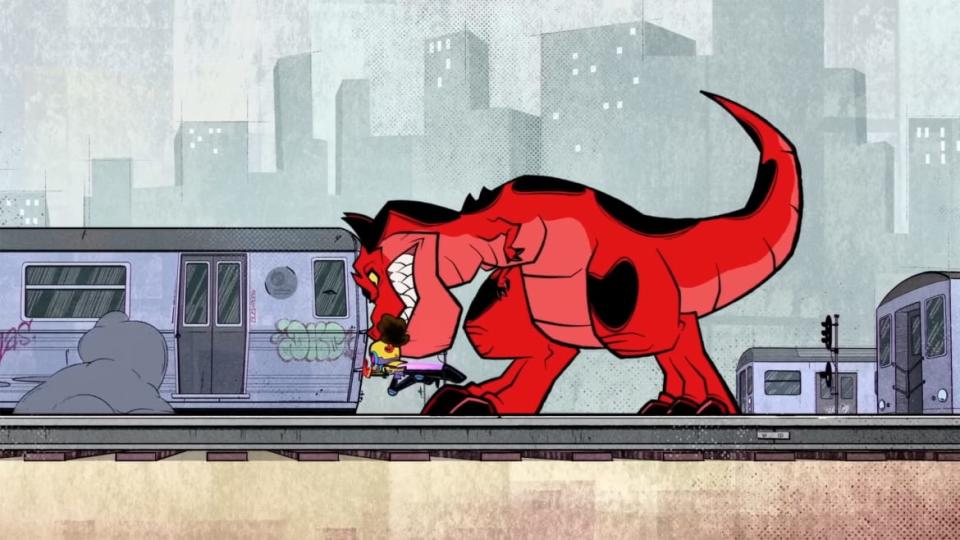The Best Marvel Show on TV Right Now Is a Cartoon for Kids

Part of the recent disappointment with the Marvel Cinematic Universe comes from the feeling that it’s flubbing some of its loftiest supposed goals. Over the past few years, Marvel has made a lot of gestures toward embracing a trippier multiverse of sometimes-cosmic stories, expanding the roster of heroes to show greater diversity, utilizing a bolder visual palette that doesn’t render every environment as another green-screened slab of slate-gray overpass, and (on TV, at least) operating at smaller scales than the usual world-ending Avengers-level crossover. How does all of that add up to a glorified Zoom call of a movie like Ant-Man and the Wasp: Quantumania or a dreary non-event of a show like Secret Invasion?
The dirty secret of Marvel is that it’s easier to fulfill certain creative ambitions when the movies or shows in question inch (or leap) further away from the company’s inner circle of continuity. Sony’s Spider-Verse cartoons, for example, have become a gold standard in comic-book adaptation by embracing their nerdy roots and stylistic boldness, outside the watchful purview of honcho Kevin Feige. The animated series Moon Girl and Devil Dinosaur, meanwhile, doesn’t technically come as far out-of-house; it’s a Disney production, with the new second season airing on the company’s cable and streaming channels. But it’s hard to imagine that it receives much executive scrutiny.
It’s also, admittedly, a show for kids. But maybe admitting a lot of this material is for kids is the first step to having fun with it again. Based on a Marvel comics series that originated in 2016, the series follows the adventures of 13-year-old Lunella Lafayette (Diamond White), a lifelong Manhattan resident and science genius who moonlights as the Lower East Side superhero Moon Girl—assisted by Devil, a red dinosaur that she accidentally retrieved from an interdimensional portal (and which the comics retrieved from 1970s stories by Jack Kirby). Lunella’s parents (Sasheer Zamata and Jermaine Fowler) run a roller rink—something of an anomaly for the present-day LES, but never mind—and remain in the dark about their daughter’s secret identity. Lunella’s best friend, Casey (Libe Barer), knows her secret, and at the end of last season, Lunella’s grandmother, Mimi (Alfre Woodard), found out, too. It turns out Mimi was the “original” Moon Girl, a code-named scientist whom Lunella idolizes.
The second season picks up last year’s cliffhanger, in which Moon Girl jumped into a portal to save her loved ones. She spends the first episode trying to get home, enlisting the help of the Beyonder, a particularly rococo Marvel cosmic weirdo who appeared last season, and was voiced with great comic elan by Laurence Fishburne—also an executive producer who helped prod the show into existence. Based on the first four of this season’s 24 planned installments, Moon Girl’s brief adventures in the multiverse will have ramifications for her subsequent and more earthbound stories. In one episode, she grapples with wanting a stronger, more protective suit following her semi-harrowing experience. In another, Casey deals with the stress she felt over the danger her friend has put herself into.

Marvel’s Moon Girl and Devil Dinosaur
The show is too lighthearted to come out and say so, but it could easily be read as a parable of the joys and anxieties that come with being young, gifted, and Black. “I’m trying to make STEM chic a thing,” Lunella says at one point, and yeah, no kidding; the series, heavy with geek-outs about science and math, sometimes plays like a STEM recruitment video designed to assure that impressionable young viewers will never make the dire mistake of becoming liberal-arts generalists. There’s a lot of talk about changing the world through tech, which sometimes feels glib, given that no one’s big inventions seem to go past the fighting-supervillains stage. (Fantasy-world promises to “end world hunger” have started to sound as hollow as any politician’s pledge.)
Moon Girl does embrace the arts with its music and visual style, an area where so many “real” MCU productions exercise too much caution. Like Spider-Verse, the show paints with a bolder, broader color palette than more grounded live-action fare, with bright blues and popping pinks, unafraid to abstract its cityscapes into splattered canvases. The character animation feels even freer and more expressive this season: In an episode where Lunella and Casey clash over a shared workspace (and then, oh yeah, must shrink themselves and enter Devil’s digestive tract to retrieve a dangerous weapon), their demonstrations of irritation, disgust, and, eventually, bestie love all have a caricatured elasticity that recalls wackier shows like Teen Titans Go!

Marvel’s Moon Girl and Devil Dinosaur
Unlike that anarchic DC Comics self-satire, Moon Girl doesn’t aim to spoof—and for all of its willingness to do its own thing, the show doesn’t avoid MCU continuity entirely, even if it’s probably not considered canon. Cobie Smulders played Maria Hill on the show last season (and it was the “real” MCU show Secret Invasion that was dumb and capricious enough to kill her off), and in addition to voicing the Beyonder, Fishburne has reprised his small role from the second Ant-Man movie. One of the first batch of new episodes includes the Kree, the alien race to which Captain Marvel once pledged allegiance. Moon Girl offers a reminder that these connections can be fun, instead of an exposition chore. Kids raised on shows like this may become avid comics readers—and may be less likely to accept blander, duller adaptations in the future.
Get the Daily Beast's biggest scoops and scandals delivered right to your inbox. Sign up now.
Stay informed and gain unlimited access to the Daily Beast's unmatched reporting. Subscribe now.


